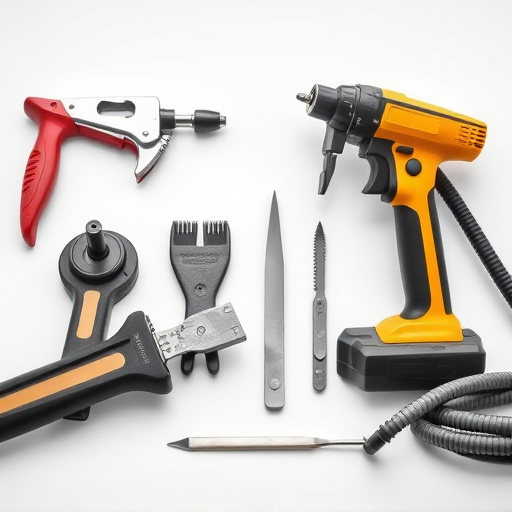Collision center warranties are essential for automotive restoration, providing financial protection and peace of mind based on validity periods influenced by damage severity, repair types, and policies. Digital tools streamline processes, enhancing efficiency and accuracy by tracking validity periods, automating repair histories, and enabling quick warranty verification. Implementing user-friendly software, integrating data from frame straightening services, regular audits, and real-time tracking ensures compliance with warranty requirements, ultimately boosting customer satisfaction and the collision center's reputation.
In the efficient management of collision centers, tracking warranty validity periods is paramount. This article explores the significance of understanding collision center warranty validity and how technology can streamline operations. We delve into the digital tools revolutionizing warranty management, offering enhanced visibility and control over these critical timelines. By implementing best practices, collision centers can optimize processes, improve customer satisfaction, and ensure compliance through effective tracking of collision center warranties.
- Understanding Collision Center Warranty Validity Periods
- The Role of Technology in Tracking and Managing Warranties
- Best Practices for Utilizing Digital Tools to Enhance Collision Center Operations
Understanding Collision Center Warranty Validity Periods

Collision center warranties are an essential aspect of automotive restoration and repair services. Understanding the validity periods attached to these warranties is crucial for both collision centers and car owners. These periods dictate the duration for which repairs or replacements are covered, providing peace of mind and financial protection for vehicle owners after a collision.
Auto collision centers often offer extended warranty options, ensuring that customers can benefit from top-quality auto repair services without incurring unexpected costs. The validity periods vary based on factors like the severity of damage, type of repairs conducted, and the specific policies of the collision center or insurance provider. Knowing these periods helps vehicle owners plan for potential future expenses and make informed decisions regarding their automotive restoration needs.
The Role of Technology in Tracking and Managing Warranties

Technology has revolutionized the way collision centers manage their warranties, offering increased efficiency and accuracy. Digital systems now play a pivotal role in tracking collision center warranty validity periods, ensuring that both customers and repair facilities are well-informed about the remaining coverage. This is particularly beneficial for vehicle body shops dealing with various types of repairs, including paintless dent repair, as it streamlines the warranty verification process.
By implementing technology, these centers can automatically generate and store detailed records of each vehicle’s repair history, along with its associated warranty details. This digital approach eliminates manual errors and allows staff to quickly access and validate warranties, whether for collision damage repair or specialized services like paintless dent repair. As a result, customers receive transparent information about their coverage, fostering trust in the facility’s processes.
Best Practices for Utilizing Digital Tools to Enhance Collision Center Operations

Utilizing digital tools can significantly enhance collision center operations by streamlining processes and ensuring accuracy, especially when it comes to managing warranty validity periods for vehicle restoration and collision damage repair services. Best practices involve implementing user-friendly software that allows staff to quickly access and update warranty information. This includes integrating data from frame straightening services, as these repairs often come with specific warranty terms.
Regular audits and real-time tracking are key. Digital systems enable centers to monitor each vehicle’s progress, ensuring every repair step aligns with warranty requirements. Automated reminders for upcoming validity periods help avoid lapses in coverage, benefiting both customers and the collision center by preventing disputes over warranty claims. This efficient approach not only improves customer satisfaction but also enhances the overall reputation of the collision center.
Collision centers can significantly streamline their operations and enhance customer satisfaction by leveraging technology to track collision center warranty validity periods. By implementing digital tools, these facilities can ensure compliance with warranty terms, reduce administrative burdens, and provide transparent communication to clients. Adopting best practices for utilizing these tools ultimately contributes to a more efficient and reliable collision center experience.














